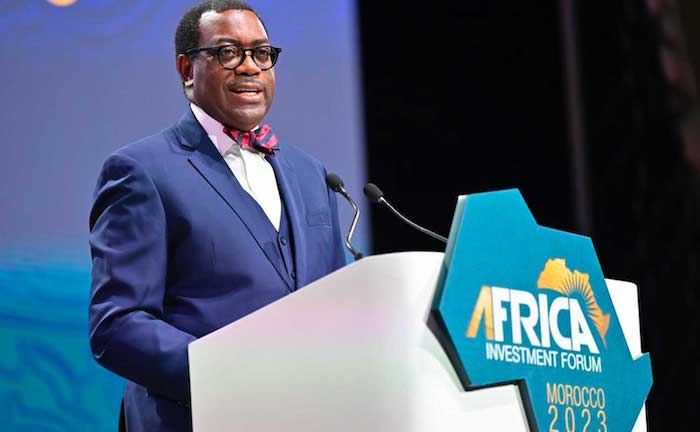Dr. Akinwumi Adesina, the President of the African Development Bank (AfDB) Group, has announced that the Abidjan-Lagos highway corridor attracted an investment interest of $15.5 billion in 2022. He highlighted that this infrastructure project, once completed, will not only transform the West African region but also enhance regional integration and trade.
Adesina disclosed that in the previous year, investment interests amounting to $3.6 billion were secured for the East Africa railway corridor, connecting Tanzania, the Democratic Republic of Congo, and Burundi.
Speaking at the 2023 Africa Investment Forum (AIF) Market Days in Marrakech, Morocco, under the theme ‘Unlocking African Value Chains,’ Adesina shared that African economies experienced a real Gross Domestic Product (GDP) growth of 3.8 percent in 2022, surpassing the world average of 3.5 percent. He projected that five of the six pre-pandemic top-performing African countries would rejoin the world’s 10 fastest-growing economies for 2023–2024.
Adesina highlighted the significance of the African Continental Free Trade Area (AfCFTA), presenting a consolidated market size of $3.4 trillion. He underscored Africa’s pivotal role in the future of electric vehicles, given its substantial contribution to the green metals needed for their development.
Furthermore, he revealed the ongoing $20 billion Desert-to-Power project spanning 11 Sahel countries, which, when completed, will be the world’s largest solar zone. Adesina emphasized Africa’s impressive default rate of 2.1 percent compared to higher rates in Eastern Europe and Asia.
Addressing the Special Agro-industrial Processing Zones (SAPZs), Adesina projected Africa’s food and agriculture market to reach $1 trillion by 2030. He expressed concern over persistent hunger in Africa and highlighted the AfDB’s commitment to supporting SAPZs, having provided $853 million in financing and mobilized over $661 million from other partners.
Adesina announced the launch of the Alliance for Special Agro-Industrial Processing Zones in collaboration with Afreximbank, Islamic Development Bank, the United Nations Industrial Development Organization, and Arise Integrated Industrial Platforms. The goal is to mobilize at least $2 billion in financing and investment commitments over the next five years, supporting the establishment of 15 to 20 SAPZ projects across the continent.
The King of Morocco, Mohammed VI, stressed Morocco’s commitment to regional integration in Africa, exemplified by projects like the Morocco-Nigeria Gas Pipeline. Dr. Benedict Oramah, President of Afreximbank, called for comprehensive project financing proposals and emphasized the importance of continental regulations and efficient resource allocation.
